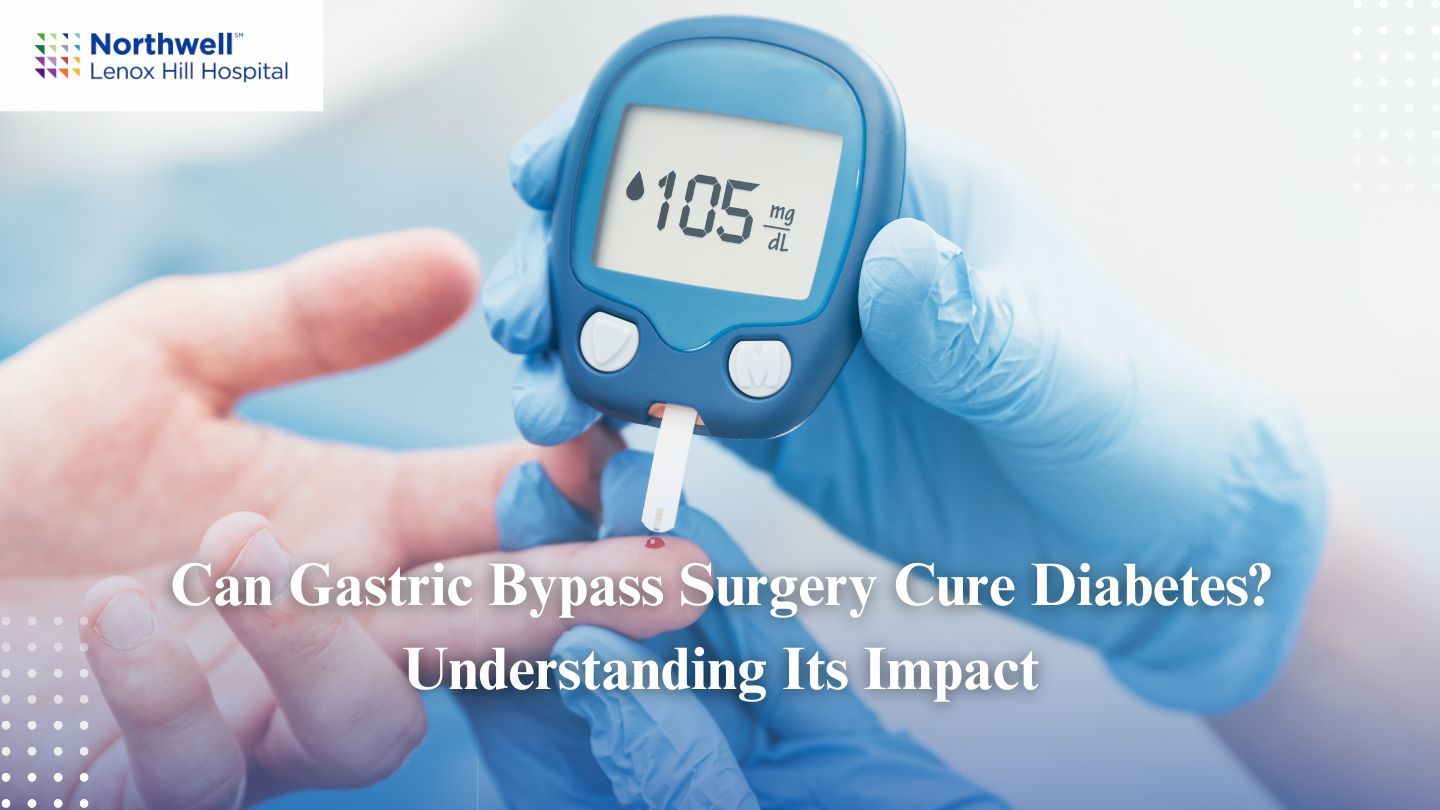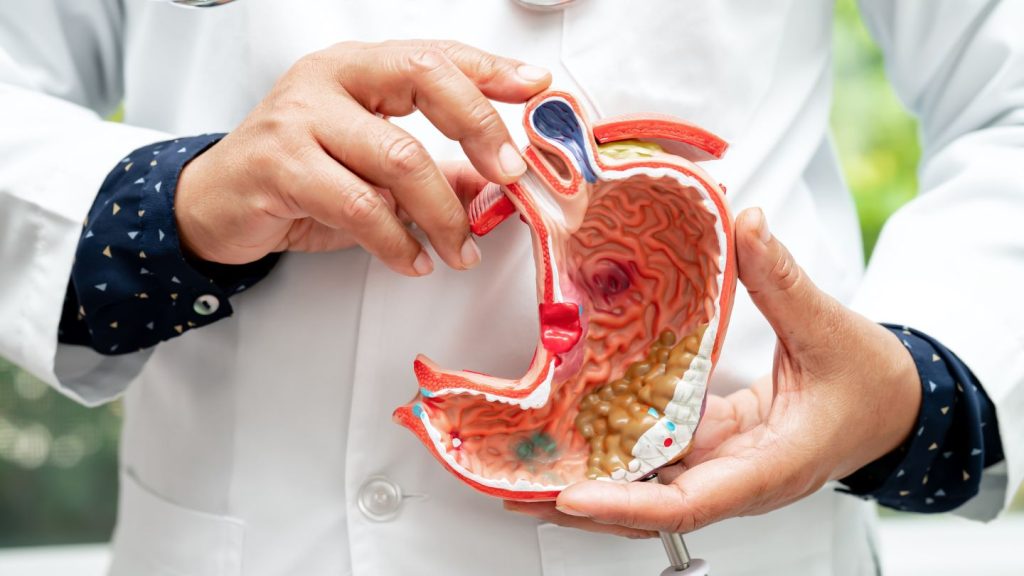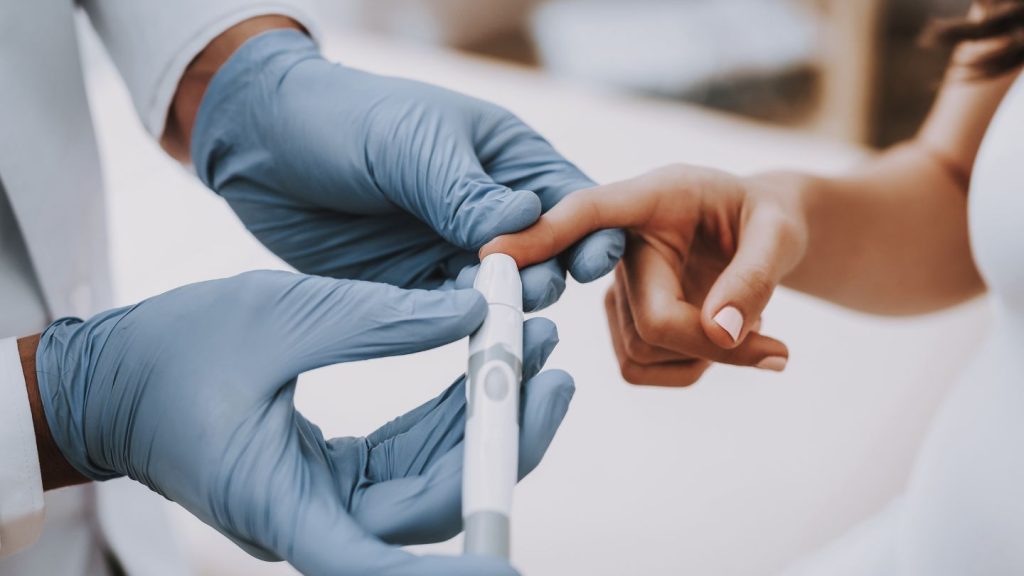
Can Gastric Bypass Surgery Cure Diabetes? Understanding Its Impact
Gastric bypass surgery can significantly improve type 2 diabetes, often leading to remission shortly after the procedure. In fact, many patients wonder if gastric bypass surgery can cure diabetes as they see their blood sugar levels normalize and reduce their need for medication. How effective is this surgery in the long term, and what mechanisms make it work? Many studies suggest that, indeed, gastric bypass surgery can gastric bypass surgery cure diabetes for a substantial number of individuals.
Key Takeaways
- Gastric bypass surgery can achieve over 75% remission rates for type 2 diabetes, with significant improvements in blood sugar levels often observed shortly after the procedure, even prior to weight loss.
- Hormonal changes post-surgery, particularly the secretion of GLP-1, significantly enhance insulin sensitivity and metabolic outcomes, contributing to long-term diabetes control.
- Bariatric surgery offers individualized pathways to diabetes management, and professional care ensures these metabolic and hormonal shifts are optimized for sustained results.
How Gastric Bypass Surgery Affects Diabetes

Bariatric surgery, specifically gastric bypass, has demonstrated exceptional success in enhancing the management of diabetes. Many patients achieve substantial remission from diabetes soon after undergoing this procedure. Notably, immediate improvements are often observed in blood glucose levels, even before a significant reduction in body weight. This underscores the robust metabolic shifts initiated by the operation.
Rather than relying on general interventions, our specialized team ensures that patients are guided through tailored pre-and postoperative care. We provide comprehensive monitoring and adjustments, ensuring long-term diabetes remission and effective weight management.
In many cases, fasting blood sugar readings return to normal ranges within just days of the surgery. This rapid response can be attributed to professional oversight in caloric restriction, improved insulin responsiveness, and adjustments to insulin production rates. Patients experiencing long-term remission benefit from ongoing follow-ups and customized lifestyle plans, emphasizing the importance of professional care over self-directed methods.
Mechanisms Behind Diabetes Remission
Achieving diabetes remission after bariatric surgery involves a combination of hormonal and metabolic changes. These shifts cannot be replicated with DIY approaches and require precise surgical intervention combined with professional expertise.
Post-surgery, patients experience a marked increase in insulin sensitivity due to hormonal rebalancing. The gut hormone GLP-1, which enhances pancreatic insulin production, plays a crucial role in regulating blood sugar levels after surgery. These metabolic improvements are further supported by continuous monitoring and personalized dietary guidance to ensure maximum benefit.
Patients are often surprised at how quickly their A1c levels improve—an achievement that reflects professional care and tailored follow-ups. In addition to addressing the immediate benefits, our approach focuses on long-term strategies to maintain diabetes remission.
Types of Bariatric Surgeries and Their Impact on Diabetes

Every bariatric surgery is distinct, offering specialized approaches to facilitating weight loss and regulating diabetes management. Below, we explore the three main types of bariatric procedures and their unique impacts on diabetes.
Gastric Bypass Surgery
The Roux-en-Y gastric bypass is widely recognized for its success in achieving diabetes remission. Modifying the gastrointestinal tract promotes substantial weight loss—a cornerstone in managing type 2 diabetes. Patients often experience improved blood sugar control and, in many cases, complete remission from diabetes.
This procedure involves reducing the stomach’s capacity and rerouting a portion of the small intestine. These changes fundamentally alter food consumption patterns, digestion, and nutrient absorption, enhancing the body’s ability to regulate blood sugar levels. The profound weight reduction achieved through gastric bypass plays a pivotal role in sustaining diabetes management.
Sleeve Gastrectomy
Sleeve gastrectomy, another effective bariatric option, facilitates significant weight loss and aids in diabetes control. This procedure involves removing a large portion of the stomach, resulting in reduced food intake and subsequent weight reduction.
While sleeve gastrectomy offers substantial benefits, research highlights the importance of maintaining long-term weight loss to ensure continued diabetes remission. Patients who regain weight post-sleeve gastrectomy are more likely to see a recurrence of diabetic symptoms compared to those who undergo gastric bypass. Professional guidance and follow-up care are essential in helping patients sustain weight loss and manage diabetes effectively after surgery.
Duodenal Switch
The duodenal switch combines the benefits of a sleeve gastrectomy with a bypass of the small intestine, providing powerful results for both weight loss and diabetes control. Patients undergoing this procedure often achieve considerable improvements in blood sugar regulation and long-term diabetes remission.
This procedure’s effectiveness is rooted in its ability to alter hormonal activity and nutrient absorption significantly. The duodenal switch has demonstrated superior outcomes in diabetes remission compared to other bariatric procedures. However, careful postoperative management is required to address potential nutritional deficiencies and ensure optimal results.
Patients struggling to manage diabetes through traditional means may find the duodenal switch to be a compelling option. With professional oversight, this procedure offers a robust pathway to achieving lasting improvements in health and diabetes management.
The Role of Weight Loss in Diabetes Management

Managing diabetes is profoundly influenced by the ability to achieve and maintain a healthy weight. Bariatric surgery, particularly gastric bypass, plays a critical role in facilitating significant weight loss, which in turn helps control type 2 diabetes for the majority of patients. This weight reduction leads to lower blood sugar levels, improved insulin sensitivity, and decreased insulin resistance, making diabetes management more effective.
Many patients undergoing gastric bypass surgery report remarkable transformations. Along with shedding excess pounds, they often reduce or completely discontinue the use of diabetes medications. However, these outcomes are not solely a result of weight loss. They are also due to professional postoperative care, including tailored monitoring of blood sugar levels and guidance on maintaining metabolic health.
Beyond weight reduction, the benefits of bariatric surgery extend to improved overall health and quality of life. For example, after seven years post-surgery, 54% of patients were able to maintain A1c values below 7%, reflecting better long-term control of their diabetic condition. This level of success is achievable through a sustained commitment to dietary and lifestyle modifications guided by healthcare professionals.
Research has shown that approximately 75% of patients sustain diabetes remission for at least five years after gastric bypass surgery, even when some weight is regained. These lasting results emphasize the critical role of continuous professional support in maintaining weight loss and securing long-term diabetes remission. By following personalized care plans, patients can optimize their health outcomes and improve their overall well-being.
Post-Surgery Lifestyle Changes

After bariatric surgery, professional support is critical for sustaining the benefits of weight loss and diabetes remission. Postoperative care includes nutritional counseling, regular health monitoring, and exercise planning tailored to the patient’s needs.
Collaborating with a clinical dietitian ensures dietary adjustments meet recovery and health goals. Structured exercise programs developed by specialists help maintain weight loss and improve metabolic health.
Yearly check-ups are vital after the first two years post-surgery to monitor progress, address nutritional gaps, and prevent potential complications. This professional guidance ensures that patients continue to thrive long after surgery.
Eligibility Criteria for Bariatric Surgery
Bariatric surgery may not be the right choice for everyone. To qualify, individuals need to present a Body Mass Index (BMI) that exceeds 40 or exceeds 35 if they suffer from health complications associated with obesity. Prior to contemplating an operation with a bariatric surgeon, there must be documentation of previous attempts at weight loss under professional supervision, establishing their commitment to embracing essential lifestyle modifications.
Prospective patients should also be free from current substance abuse issues and significant psychiatric disorders. Thus, psychological evaluations are conducted to examine emotional stability and eating habits. Comprehensive pre-surgery medical examinations are also performed in order to exclude any severe underlying health conditions that could compromise the safety of undergoing the procedure.
Adherence to these specific criteria is crucial in ascertaining whether an individual is an appropriate candidate for bariatric surgery as part of their journey toward losing weight.
Benefits and Risks of Gastric Bypass Surgery
Gastric bypass surgery provides superior diabetes management outcomes compared to traditional treatments. However, diligent postoperative care is required to mitigate risks such as nutritional deficiencies. Proper care involves working closely with a team of healthcare professionals who guide patients through recovery and long-term management.
Patients are encouraged to maintain regular medical appointments, adhere to dietary recommendations, and follow tailored plans developed by their care team. This collaborative approach ensures that the surgery’s benefits are optimized while minimizing risks.
Summary
Bariatric surgery, especially gastric bypass, serves as an effective strategy for managing and potentially resolving type 2 diabetes. This procedure facilitates substantial weight loss, improved regulation of blood sugar levels, and a high rate of diabetes remission for many patients. The success of gastric bypass largely depends on the individual’s dedication to adhering to lifestyle changes post-surgery and consistent follow-up care.
For those seeking gastric bypass near Manhattan, Lenox Hill Bariatric Surgery Program offers a comprehensive and personalized approach. Our advanced surgical techniques are designed to help you achieve life-changing outcomes. With our skilled team guiding you every step of the way, from initial consultation to postoperative support, we ensure your journey is customized to meet your unique needs. Ready to embark on your health transformation? Contact us today.
Frequently Asked Questions
How soon after bariatric surgery can diabetes improvement be seen?
Many patients notice improvements in blood sugar levels within days of the surgery, even before significant weight loss, due to metabolic and hormonal changes.
Is diabetes remission permanent after bariatric surgery?
While many patients achieve long-term remission, maintaining remission often depends on sustained weight loss and adherence to a healthy lifestyle guided by medical professionals.
What happens if weight is regained after bariatric surgery?
Regaining weight can lead to a recurrence of diabetic symptoms, which is why ongoing professional monitoring and lifestyle adjustments are critical to maintaining results.